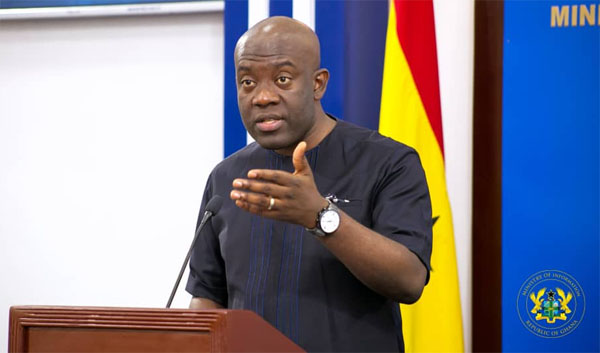Minister for Information, Kojo Oppong Nkrumah has charged Ghanaians, particularly the media ecosystem to amplify the effective efforts and interventions in Ghana’s tourism sector.
Speaking at the inaugural “Editors Forum” hosted by the Ministry of Tourism, Arts and Culture in partnership with the Ghana Tourism Authority, Kojo Oppong Nkrumah, shed light on significant interventions within Ghana’s Tourism sector as he described it as a crucial but often overlooked aspect of Ghana’s economic growth.
With the theme “Tourism: Policy, Progress, and Partnerships,” the forum resonated with the minister’s passionate call for collaborative endeavours to harness the enormous potential of the tourism sector in driving Ghana’s economy forward. “We grow more as a country if we take a lot more time talking about productivity. The more we tune attention and talk about productivity, the better we grow as a country and that is seen in the tourism space,” he said.
Kojo Oppong Nkrumah stressed that the genuine substance of economic growth is woven into numerous sectors, with the tourism industry playing a crucial part as he dispelled the myth that the economy is synonymous with finance.
He explained, “We are in a country where everybody thinks and sometimes even political parties and administrations erroneously think that the economy is equal to finance. The economy is rather the end product of various things, especially the tourism sector.”
Drawing attention to the tangible impact of tourism on the nation’s GDP, the minister highlighted that the tourism, creative arts, and hospitality sectors emerge as the third highest contributor, fostering a dynamic environment for job creation and income generation.
“If we look at the number closely from the tourism, creative arts and hospitality sector, it’s about the third highest contributor to GDP in our country. That means it’s the third largest sector in our country where there’s productive activities, where people are finding jobs, incomes and improve their own quality of life,” he emphasized.
He also emphasized the sector’s significance from a foreign exchange perspective and revealed that it is the second largest contributor.
“It is a very important sector and a huge contributor to our economic advancement. So the kind of interventions that has been going on in recent years are key to helping us move our economy from where it is now,” he added.
He further called for a united approach to harness the full potential of Ghana’s tourism, urging all stakeholders including the media and private sector to collectively work towards propelling Ghana’s economy beyond the confines of traditional financial avenues.
By: Jude Tackie




















